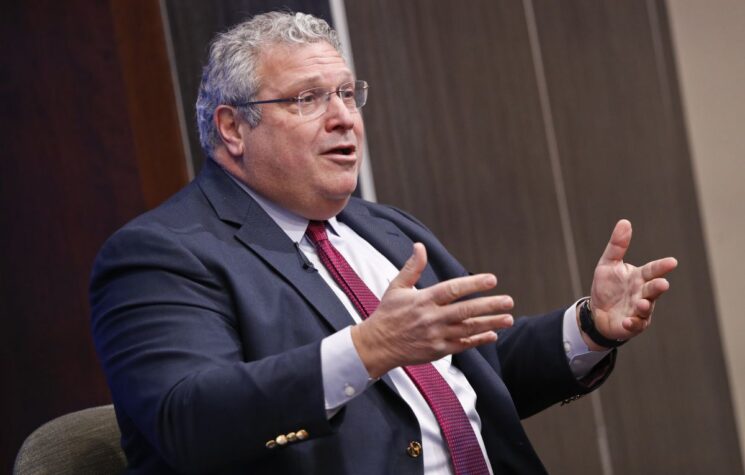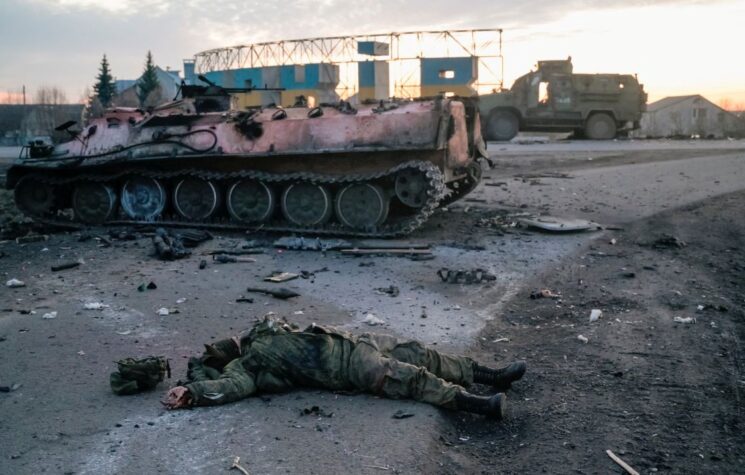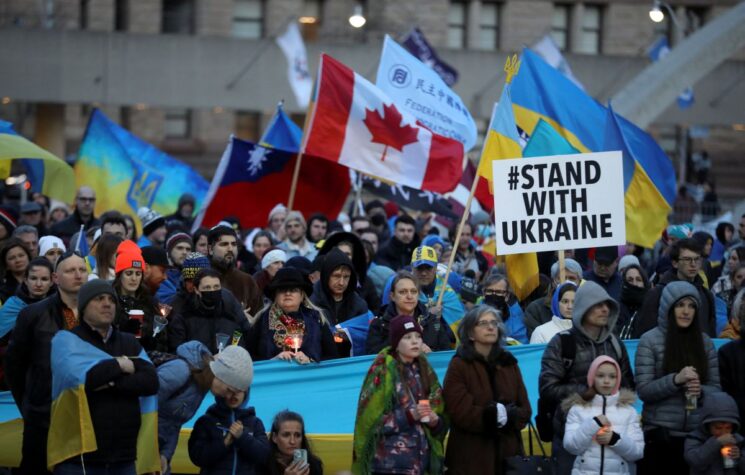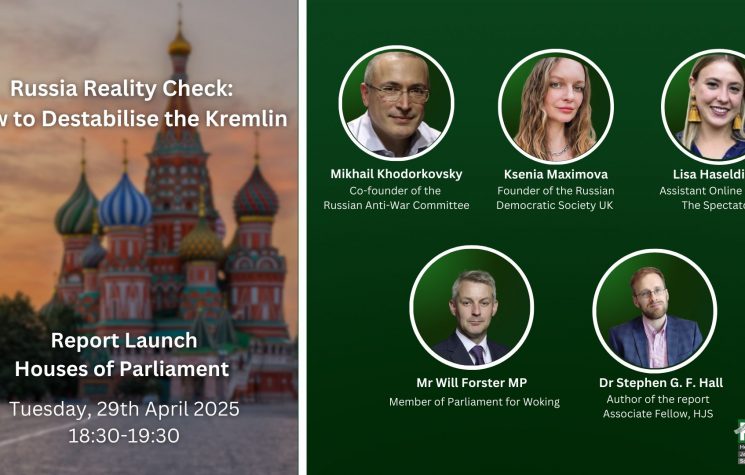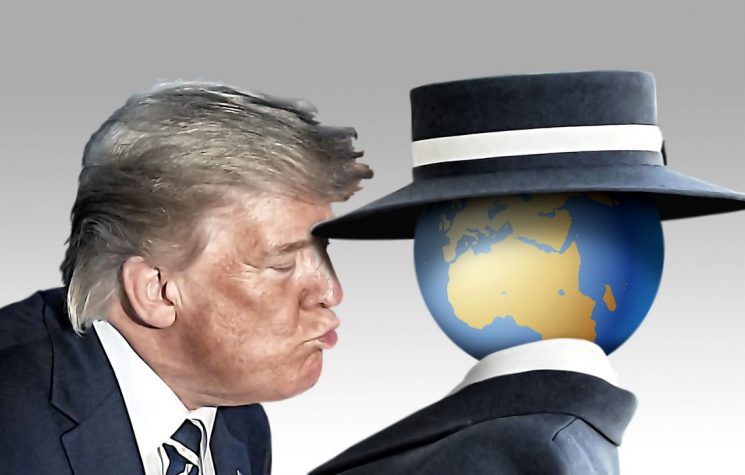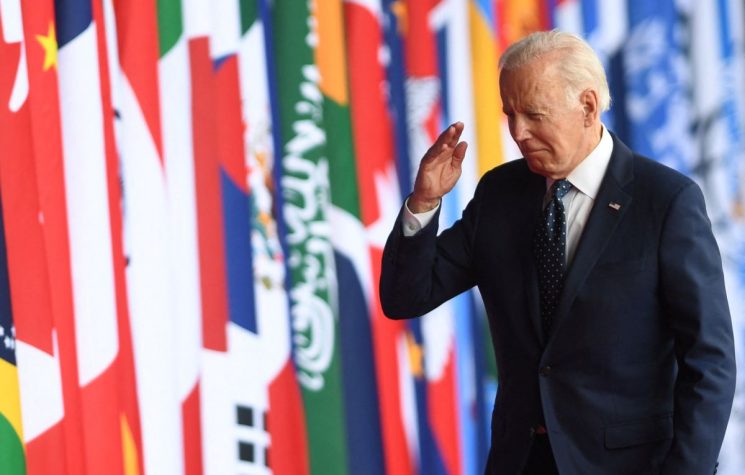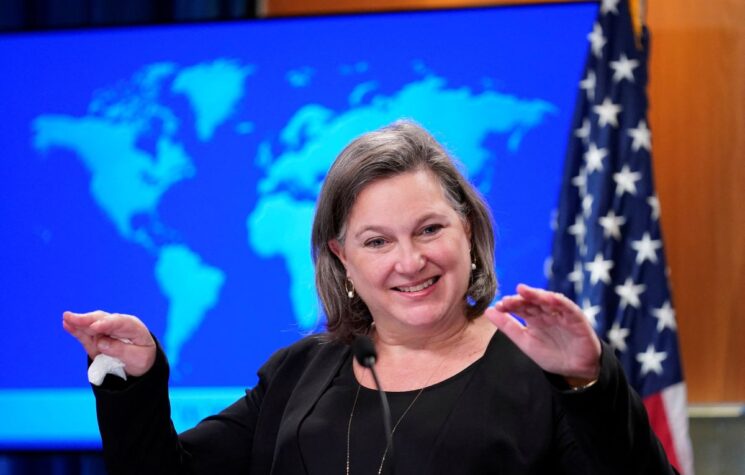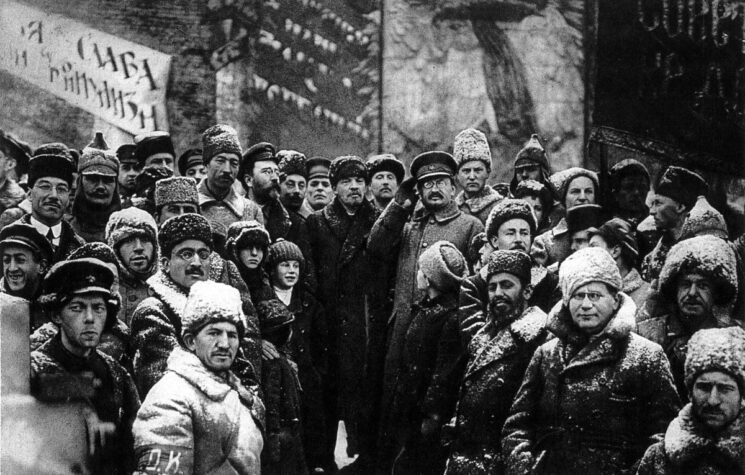“Putin’s disinformation campaigns” are so clever that they use real information, Patrick Armstrong writes.
We now have the complete set, so to speak. The Khans of the Khanate of Kaganstan have both spoken. The husband in A Superpower, Like It or Not and the wife in Pinning Down Putin: How a Confident America Should Deal With Russia; he, so to speak, is the theorist and she the practitioner. She, Victoria Nuland, is back in power as Under Secretary of State for Political Affairs. She is, of course, infamous for the leaked phonecall during the Maidan putsch. He, Robert Kagan, is one of the founders of the – what now has to be seen as ill-named – Project for the New American Century.
I mentioned Kagan’s piece in an earlier essay and found it remarkable for two things – the flat learning curve it displays and its atmosphere of desperation. PNAC was started in a time of optimism about American power: it was the hyperpower and nothing was impossible for it. Its role in the world should be, Kagan confidently wrote in 1996, “Benevolent global hegemony”. Washington should be the world HQ:
superpower, love it!
A quarter century later his message is:
superpower, endure it.
Quite a difference. Today “there is no escape from global responsibility… the task of maintaining a world order is unending and fraught with costs but preferable to the alternative”.
Kagan is at a loss to explain his difference in tone, or, more likely, he’s unaware of it. The reason, however, is quite easy to understand – failure. Washington followed the neocons’ advice into disaster: it’s been at war in Iraq and Afghanistan for two decades and it’s losing. The forever wars have come home: its economy is fading, its politics are shattered, its debt load is stunning, its social harmony is eroding. It’s not at the top of the hill any more. Brzezinski warned that a Russia-China alliance would be the greatest threat to U.S. predominance but thought it could be averted by skilful diplomacy. Well, as it turned out, U.S. actions (the word “diplomacy” is hardly applicable) drove Moscow and Beijing together and the strong domestic base that they all took for granted is crumbling. And, to a large extent, it has been the neocons, the wars they encouraged, the exceptionalism they displayed, the arrogance they embodied, that has created this state of affairs. Kagan should look in the mirror if he wants to know why Americans’ perception of superpower status changed from exultant opportunity to dreary duty.
With this background, we turn our attention to Nuland’s views about what should be done about Russia (“Putin’s Russia” of course – these people personalise everything). Her piece entertainingly marries stunning ignorance about Russia to stunning naïvety about prescriptions. There is no point in boring the reader by trudging through her nonsense, so I will just pick a few things.
- She believes that Russia’s infrastructure is crumbling away, the money squandered in corruption and weapons. Well, here are Russia’s new airports, new highways, new hospitals built just for COVID-19, new bridges. Here’s some YouTube links for more. Speaking of decaying infrastructure, she might better look to home: Decaying D.C. bridge reflects state of thousands of bridges nationwide. (Parenthetically – almost everything neocons say that isn’t outright fantasy, is projection).
- “This year, the coronavirus pandemic and the free fall in oil prices could result in a significant economic contraction”. Wrong again: Russia’s economy has done better (less badly) than the G7 average and the oil price war has hurt the U.S. more.
- “Russia currently has $150 billion in its National Wealth Fund and more than $550 billion overall in gold and foreign reserves.” And just how did this collapsing, kleptocratic, mismanaged and rusting-out economy manage to pile up so much moolah? She isn’t even aware that there’s a question here for her to answer.
Those three are enough – Victoria Nuland, for all that she pretends to superior knowledge, is absurdly unaware of the real situation in Russia. And it’s not as if it’s all that hidden, either: all the sources I mention above are in English and easy to find. In her world, Russia is guilty of everything Rachel Maddow says it is, including using cyberweapons against electrical grids.
What are her prescriptions? And, again, for someone who poses as an expert on Russia, they’re laughable. Her general theme is that Washington and its allies have let Putin get away with too much for too long and it’s time to take back control:
Washington and its allies have forgotten the statecraft that won the Cold War and continued to yield results for many years after. That strategy required consistent U.S. leadership at the presidential level, unity with democratic allies and partners, and a shared resolve to deter and roll back dangerous behavior by the Kremlin. It also included incentives for Moscow to cooperate and, at times, direct appeals to the Russian people about the benefits of a better relationship. Yet that approach has fallen into disuse, even as Russia’s threat to the liberal world has grown.
Whoever wins the U.S. presidential election this coming fall will—and should—try again with Putin. The first order of business, however, must be to mount a more unified and robust defense of U.S. and allied security interests wherever Moscow challenges them. From that position of strength, Washington and its allies can offer Moscow cooperation when it is possible. They should also resist Putin’s attempts to cut off his population from the outside world and speak directly to the Russian people about the benefits of working together and the price they have paid for Putin’s hard turn away from liberalism.
In short: reassert “leadership”, “resolve”, “position of strength”; the now familiar PNAC “strategy” that has failed for twenty-five years.
A few gems stick out.
- “No matter how hard Washington and its allies tried to persuade Moscow that NATO was a purely defensive alliance that posed no threat to Russia, it continued to serve Putin’s agenda to see Europe in zero-sum terms.” No comment necessary or possible: this is just as solipsistic as describing a Russian military exercise in Russia as “Russia’s Military Drills Near NATO Border Raise Fears of Aggression“.
- The U.S. and its allies should continue “maintaining robust defense budgets”. As if they weren’t already hugely outspending Moscow. She knows they aren’t keeping up because she goes on to say they must spend more to “protect against Russia’s new weapons systems”. Perhaps the West’s behaviour has something to do with this? Perhaps a lot of the Western spending is a waste? No, too much for her: she can sometimes glimpse reality but her exceptionalism prevents her from seeing it.
- “The one lesson Putin appears to have learned from the Cold War is that U.S. President Ronald Reagan successfully bankrupted the Soviet Union by forcing a nuclear arms race”. No, the lesson that Putin learned is that enough is enough and too much is too much. Brezhnev & Co didn’t get that. It’s the U.S. that will bankrupt. that will bankrupt itself chasing down “full-spectrum dominance”.
But the most ridiculous suggestion is surely this:
With appropriate security screening, the United States and others could permit visa-free travel for Russians between the ages of 16 and 22, allowing them to form their own opinions before their life paths are set. Western states should also consider doubling the number of government-supported educational programs at the college and graduate levels for Russians to study abroad and granting more flexible work visas to those who graduate.
She seems to think that its 1990-something. But, in the real world it’s 2021. Russians have been to the West; Russians know about it; they travel; all over the place. If Nuland ever left her bubble she would see that every European tourist spot has Russian-language guidebooks. I read through her screed with growing contempt but that really sealed it for me: Victoria Nuland hasn’t got a clue. The truth is, that the more Russians see of the West, the less impressed they are. Just ask Mariya Butina.
Again a bit of reality leaks through, from time to time, but she is incapable of reflection:
The first order of business is to restore the unity and confidence of U.S. alliances in Europe and Asia and end the fratricidal rhetoric, punitive trade policies, and unilateralism of recent years. The United States can set a global example for democratic renewal by investing in public health, innovation, infrastructure, green technologies, and job retraining while reducing barriers to trade.
Actually, doing all this is quite a big job; a very big job; too big a job in fact. And, even if Washington were to seriously start “investing in public health, innovation, infrastructure, green technologies, and job retraining while reducing barriers to trade”, remedying the numerous deficiencies would take many years.
Another thing that she dimly perceives is the gap between Russian and American weapons capabilities. Of course she can’t see any connection between that and U.S./NATO behaviour or Washington’s forever wars: it’s just another nasty thing done by that nasty man in the Kremlin. However, it is actually encouraging that she knows, however dimly; it creates the possibility that she understands that an actual war with Russia would be a bad idea. So that’s something, anyway.
* * *
However, enough consideration of this ill-informed, complacent, unrealistic sunbeam. If this were a comparative treatise on the American extraction of sunbeams from cucumbers as contrasted with the failed attempts of the so-called savants of Laputa it would be amusing, but the author of this footling effort is a few arm’s lengths away from The Nuclear Button. It is not a joke.
The fading Imperium Americanum is influenced by dangerous ignoramuses like Nuland and her husband. Everything they have suggested has failed: they start in complacency, add to it ignorance and learn nothing; but they’re still there. It’s very frightening.
* * *
Speaking of “Putin’s information stranglehold”, Nuland’s essay is available at INOSMI translated into Russian and so is her husband’s. Russians can read this stuff and form their own opinions. “Putin’s disinformation campaigns” are so clever that they use real information.
We won’t tell you that they’re dangerous idiots;
we’ll let them tell you that they’re dangerous idiots.








